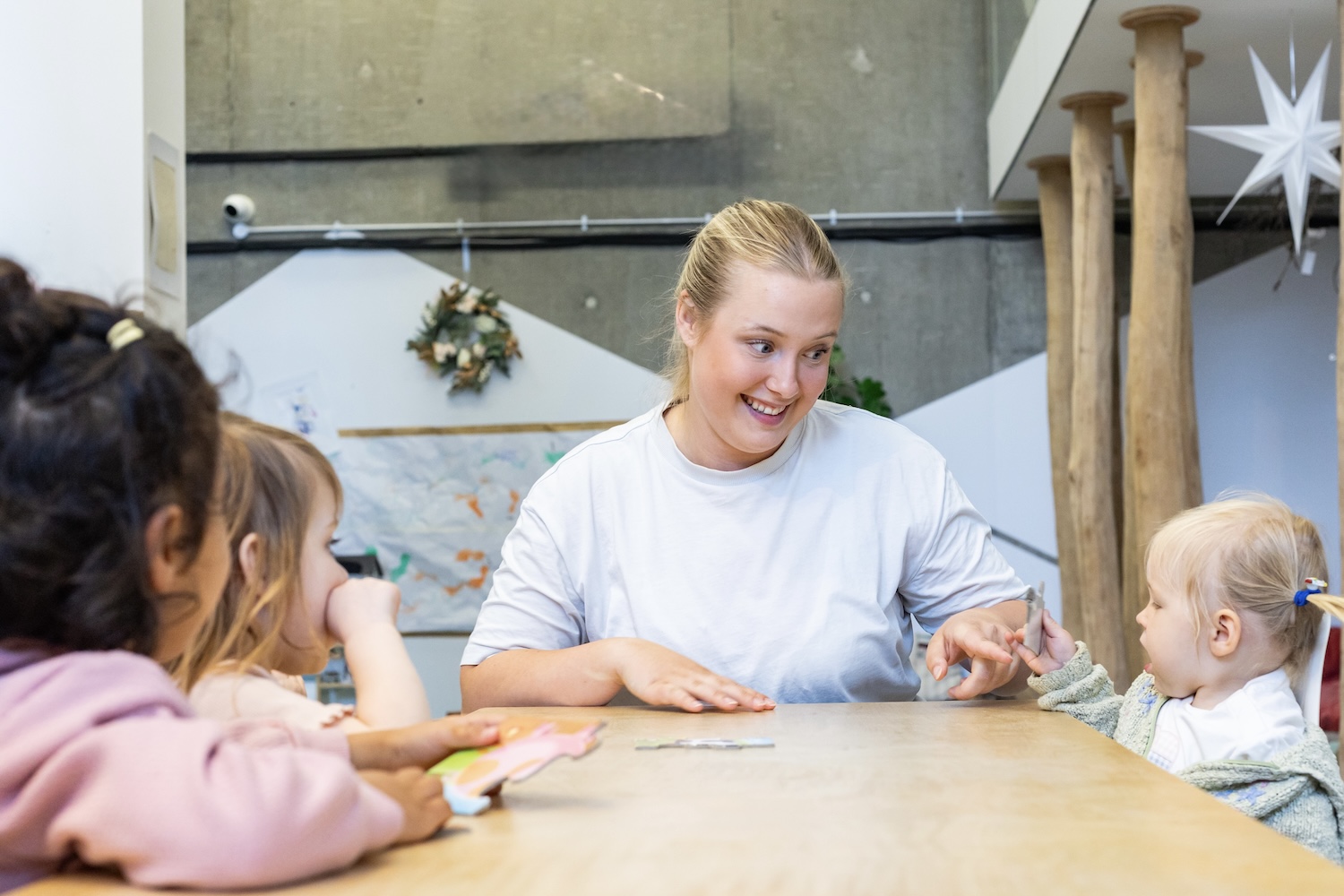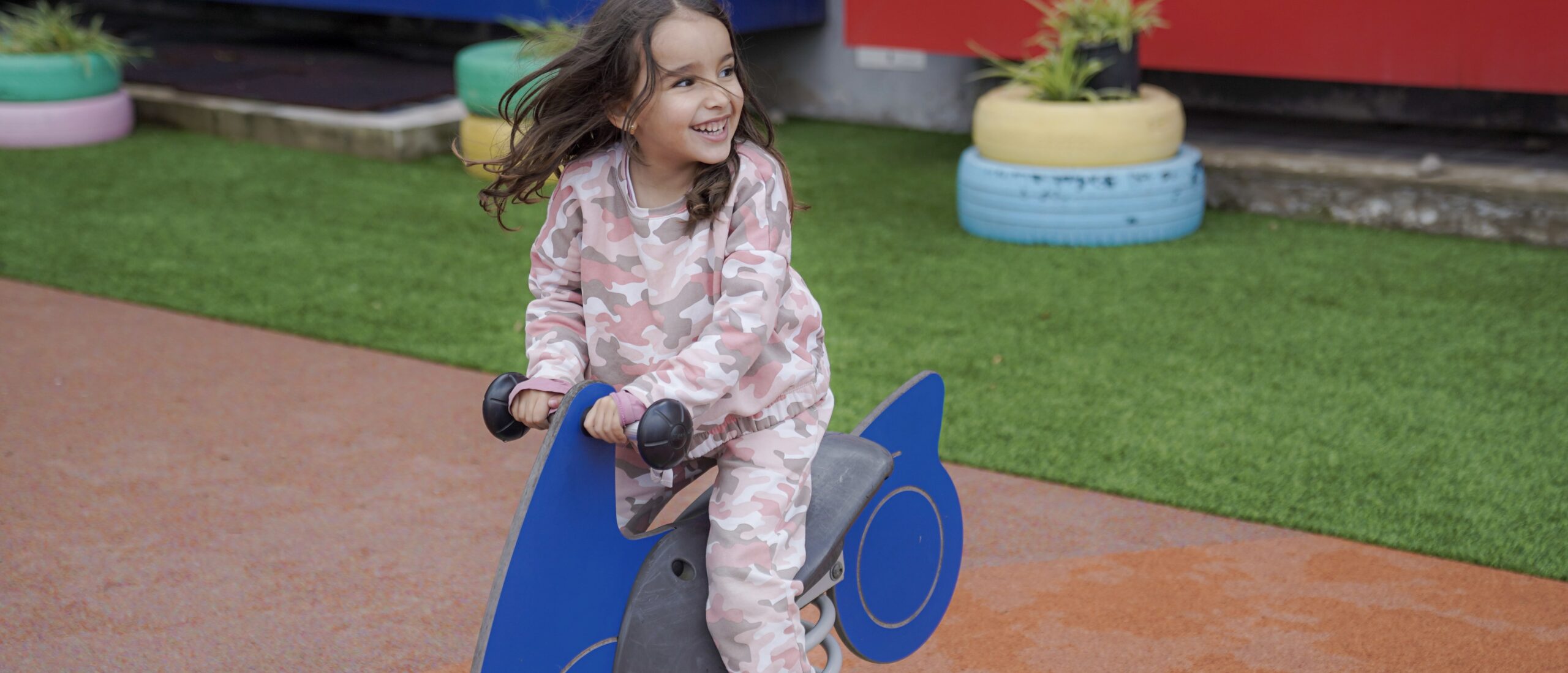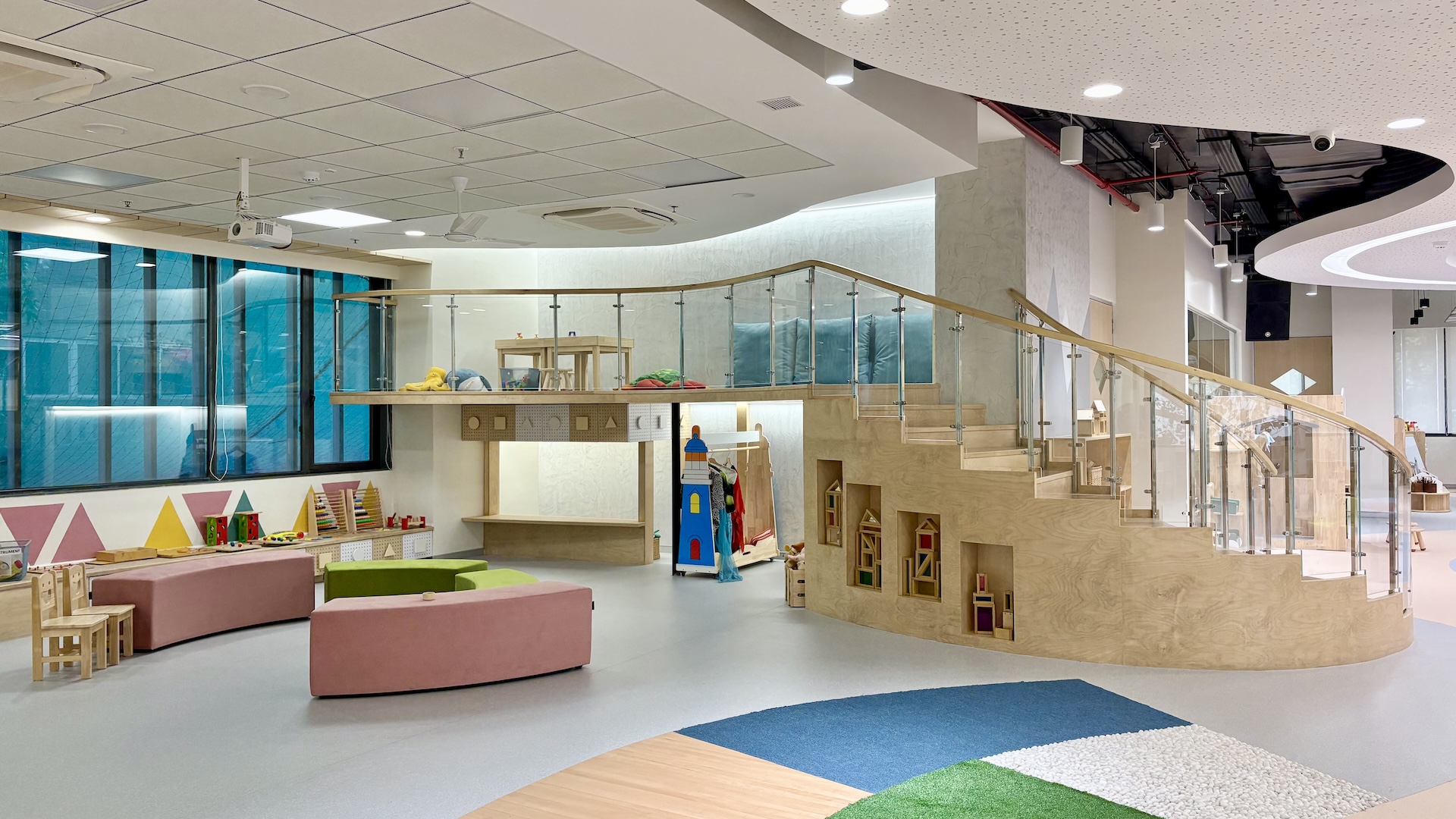As the world continues to evolve at an unprecedented pace, the skills needed for success are changing too. In the 21st century, memorising facts is no longer enough. Children must develop a broad range of capabilities known as future skills. These include creativity, critical thinking, collaboration, digital literacy, and emotional intelligence. Preschool education plays a crucial role in shaping these abilities from the very start of a child’s learning journey. This article explores how early education builds these essential skills and why it’s vital for preparing tomorrow’s leaders.
What are future skills in the 21st century?
Defining future skills for young learners
Future skills refer to a set of abilities that enable individuals to thrive in a complex, fast-changing world. For preschoolers, these include:
- Critical thinking – learning to question and make sense of the world
- Creativity – expressing ideas through art, play, and storytelling
- Collaboration – working and learning with peers
- Communication – expressing thoughts clearly and listening to others
- Digital literacy – using age-appropriate technology safely and meaningfully
- Emotional intelligence – understanding feelings and building empathy
According to a World Economic Forum report, these skills will be among the most valuable in the future job market.
Why they matter now more than ever
Today’s children will enter a world shaped by automation, artificial intelligence, and globalisation. Traditional learning methods don’t fully prepare them for these realities. By developing future skills early, children become confident problem-solvers, adaptable thinkers, and responsible digital citizens.
How preschool education builds future skills
Learning through play and exploration
Play is more than fun—it’s essential for development. Through play, children learn to take initiative, solve problems, and interact with others. For instance, role-playing games such as “playing shop” or “pretend hospital” promote communication and teamwork.
Early technology use and digital literacy
Preschools are increasingly incorporating technology in age-appropriate ways. Tools like Bee-Bots, interactive whiteboards, and tablets help children develop logical thinking and digital fluency.
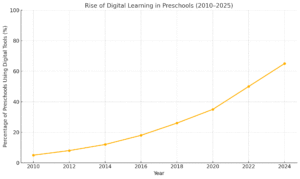
It’s important, however, that screen time is guided by educators and balanced with physical play.
Teamwork and peer interaction
Group activities such as building blocks together, solving puzzles in pairs, or collaborating on art projects nurture essential collaborative behaviours. In Finland, preschools place strong emphasis on team-based learning, allowing children to support one another.
Real-world case studies: preschools that lead the way
Finland – integrating future skills in the national curriculum
Finland’s preschools focus on holistic development. Children spend time outdoors, engage with technology mindfully, and participate in group projects. The national curriculum encourages creativity and independence rather than rote learning.
More on this approach at Education Finland
UAE – smart learning in early years
In the UAE, smart classrooms use interactive displays, voice assistants, and bilingual digital tools. Programmes run in partnership with Microsoft and IBM help introduce coding and design thinking from an early age.
India – low-cost models driving big impact
Organisations like Pratham and Teach For India implement scalable models where even low-income rural preschools can introduce future-ready tools. One programme uses storytelling apps to develop digital and language skills.
Practical tips for educators and parents
At home
- Build a Lego city with a specific goal – for planning and problem-solving
- Use drawing apps to make digital art
- Read stories together and ask open-ended questions
- Work on puzzles collaboratively
- Try Scratch Jr. for basic coding fun
In the classroom
- Encourage group work over individual drills
- Integrate storytelling, music, and art across subjects
- Use visual routines to teach decision-making
- Provide safe digital tools for guided exploration
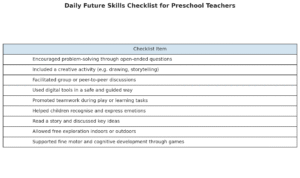
Data insights: how future skills impact long-term success
| Skills Developed | Academic Outcomes | Social Outcomes |
|---|---|---|
| Collaboration | +20% in group project scores | Fewer behavioural issues |
| Critical Thinking | +18% in problem-solving | Better decision-making |
| Digital Literacy | Higher engagement levels | Improved self-regulation |
Source: OECD 2023 Early Learning Impact Report
Addressing challenges and concerns
Are we overloading children too soon?
Some critics argue that early focus on skills like coding might be too intense. However, with a play-based, exploratory approach, learning remains joyful and natural.
Accessibility and equity
To ensure every child benefits, preschools must:
- Train teachers on digital and inclusive methods
- Provide access to tools in underserved areas
- Partner with parents to extend learning beyond the classroom
For support, see UNICEF’s Early Childhood Development resources
Frequently asked questions (FAQ)
What are the most important future skills for preschoolers?
Creativity, collaboration, critical thinking, communication, and digital literacy.
Can future skills be taught without technology?
Absolutely. Storytelling, imaginative play, and real-world problem-solving build these skills just as effectively.
How early should we start?
Preschool (ages 3–5) is ideal for laying the foundations, as young brains are highly adaptable.
Which education models are most effective?
Play-based models like those in Finland and Reggio Emilia focus on future skills without pressuring children.
Conclusion: shaping tomorrow starts today
The world our children will inherit is vastly different from ours. Equipping them with future skills—starting in preschool—is not just smart; it’s essential. Whether at home or in the classroom, small actions today can build confident, adaptable, and compassionate adults for tomorrow. Let’s shape the future, one young learner at a time.
